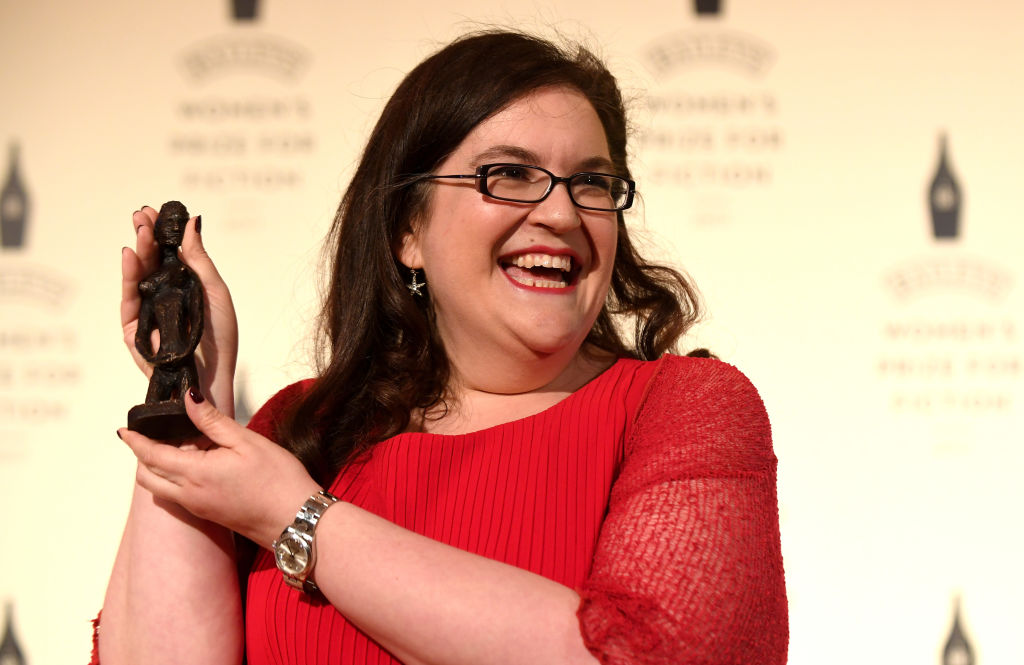This year marks the 25th anniversary of the Women’s Prize For Fiction, and there is much to celebrate. Over the last quarter of a century the prize has become one of the most successful awards in the world, and has exposed readers to important, challenging and accomplished works by female authors. There is no doubt that the Prize will go down in the ‘herstory’ books as a force for good. However, with Maggie O’Farrell announced as the 25th winner last night, perhaps it no longer needs to be part of our future.
Much has changed in 25 years. In 1991, when the idea for the Prize was in its early embryonic form, there was not a single female writer in the Booker Prize shortlist, and clearly many female writers were being overlooked.
That is simply not the case now. In the 2020 Booker Prize shortlist, nine out of 13 of the writers are women. In the last ten years, six American female authors have won the National Book Award, while more women have won the Costa Book of the Year than men. Over the last 20 years, the Neustadt International Prize for Literature has been awarded as many times to women as to men. And the last five winners of the Hugo Award For Best Sci-Fi and Fantasy Novel have all been women.
Literature, it seems, is one of the few areas in which women do not need a leg-up. Women dominate the literary market: they write more books than men, they read more books than men. According to Helen Taylor’s Why Women Read Fiction, women account for 80 per cent of fiction sales in the UK, US and Canada. Female writers outsell male ones in many genres, including romance, history and horror fiction.
Of course there is still a long way to go, and we cannot overlook disparities, particularly at the top of the publishing world – a 2018 study found that despite 70 per cent of Bloomsbury’s employers being female, men still earn a mean average of 23 per cent more. Indeed, in the top ten largest UK book publishers, there is not a single female CEO.
However, is a women-only prize the best way to continue to campaign for equality and representation? Is it necessary, or could it now be seen as potentially patronising?
As prestigious as the Prize may be, it is also fundamentally problematic. By evaluating women’s fiction separately, we are inevitably pigeonholing it. Not only does the Prize dilute the achievements of the winners (no female author wants to be the best female author, they want to be the best author full stop), it also suggests that women need preferential treatment. There is a danger that we are sending out a message that women need a ‘special’, supplementary Prize, and that they can’t compete on the same level as men.
As a secondary school teacher, I would never award an English prize, and then a girl’s English prize – the students would have a field day. I can imagine the outcries: ‘Miss, why do the girls get an extra prize?!’ ‘Miss, why shouldn’t I aim for the normal English prize?!’ It would be seen as old-fashioned, unfair, and downright sexist.
There is also a risk that by having this additional Prize, women might be overlooked for other ones. Interestingly, more women won the Pulitzer Prize For Fiction between 1980 and 2000 than between 2000 and 2020. This suggests that the exposure that the Prize gives women does not necessarily translate to equality, and may actually hinder rather than help. Judges may not prioritise fair gender representation if they know women are being favoured elsewhere.
Some may contend that we still need the Prize because men make up the majority of reviewers – for example, women accounted for only 22 per cent of the contributors at the London Review of Books, according to a letter the LRB published in 2017. The problem with this argument is that it rather patronisingly assumes that men must and will favour stories written about men by men.
This might have once been the case when canonical literature was more limited, but entrenching gender categorisations is not the answer. I recently returned from holiday where one of my male friends was reading The God of Small Things by Arundhati Roy and another was reading Where The Crawdads Sing by Delia Owens. I also did a survey with my classes at an all boys’ school where I asked them to name their favourite book we had studied that year. One class chose I Am Malala by Malala Yousafzai; another chose The Bell Jar by Sylvia Plath. Gendered reviewers do not necessarily mean gender bias.
The Women’s Prize For Fiction may well be powerful and political, but it should also be pliant. If it doesn’t show openness and willingness to change with the times, then it risks becoming gratuitous and anachronistic, and actually undermining the great work it has done. Keep the dialogue about equality going, but there is no need to continue having a separate conversation altogether.






Comments